
With the 20th anniversary of September 11th, 2001 now behind us, let's take a look at the cost of the twenty year-long War on Terror as calculated by the Watson Institute at Brown University.
1.) Human Costs of the War on Terror:
Here is a table showing the human costs directly related to the war in the five main theatres:
The Watson Institute notes that several times more people have been killed in the nations listed in the table thanks to unintended consequences like the destruction of infrastructure (i.e. hospitals, water and sewage) which have led to increases in deadly diseases which cannot be treated.
2.) The Budgetary Costs of the War on Terror:
Here is a graphic which breaks down the post-September 11, 2001 costs of the War on Terror from fiscal 2002 to fiscal 2022:
Here is a table showing the same information for those of my readers that would prefer data in table form:
Note that federal spending on future medical care for veterans of the post-September 11, 2001 wars is estimated at roughly $2.2 trillion.
This cost data does not include all of the funding that was provided for humanitarian assistance and economic development aid in both Afghanistan and Iraq. It also does not include the future costs of interest payments on the funds borrowed to pay for the War on Terror after fiscal year 2023 since the war was funded by taking on additional federal debt, not by selling war bonds as was the case during World War II. It is also important to note that the cost data does not include the funding by U.S. allies in the war including Australia, Canada, Denmark, the United Kingdom, Denmark, Italy, the Netherlands, Germany and France among others. Had allies not borne part of the cost of the war, the financial costs of the War on Terror would be far higher for American taxpayers.
If we look at the United States Department of Defense Base Budget and the Emergency Overseas Contingency Operations (OCO) Appropriations, this is what we find:
The DoD's base budget has continued to rise for four reasons that are directly and indirectly related to the War on Terror:
1.) the U.S. military has devoted an increasingly large share of its military spending on contractors with the use of contractors with the cost of contractors having more than doubled during the War on Terror.
2.) the modernization of the U.S. military and replacement of equipment that was destroyed, damaged or used during the wars requiring replacement or repairs, sometimes with more expensive equipment.
3.) increased cost of personnel costs over the two decades of the War on Terror thanks to increases in cash payments, allowances for food and housing which grew by 20 percent between 2002 and 2018. As well, the use of bonuses for recruitment and retention increased as enlistment rates were negatively effected as casualties rose in Afghanistan and Iraq. In addition, total Defense Health Program spending rose significantly as shown here:
4.) the dividing line between direct DoD and OCO direct war spending at the base budget became "fuzzy" with OCO money being used to supplement the base budget and with some activities in major war zones being classified as enduring requirements and were then institutionalized into the base budget.
As you can see from this data, over the past twenty years, the human and monetary costs of the War on Terror have been punitive, both for the citizens of the nations where the U.S. was militarily active and for American taxpayers who will be paying for this war through taxation for the foreseeable future.
Let's close with this quote from the conclusion of the Watson Institute's report with bolds being mine:
"The U.S. responded to the 9/11 attacks through a military mobilization of unprecedented scope, scale, and duration. The costs of such a response will not end after U.S. troops withdraw from Afghanistan and Iraq. The U.S. continues to invest in war in other areas around the globe, devote a great deal of resources to counterterrorism at home, and must pay future costs—including for veterans’ disability and medical care and interest on borrowing to pay for the post-9/11 wars.
Every country goes to war believing that they can win, that the fighting and its consequences will be controllable, that the costs of war will be less expensive than diplomatic efforts or sanctions, and that there will be few casualties because they will take great care to protect their own soldiers and the lives of innocent civilians. But war rarely goes as planned. When things don’t go as planned, new increments of force are added—or surged—to the war zone on the theory that just a bit more force will make the difference. The costs in lives and treasure goes up as the level of force is ratcheted up. And war continues.
Democracy can sometimes take a beating during war. Operations may be shrouded in well-intentioned but perhaps unnecessary secrecy, and mistakes are generally swept under the rug or downplayed. Voices of caution or those who ask for more details about plans and alternatives are often ignored, derided, or silenced as citizens and decisionmakers rally around the flag and defer to generals in an atmosphere of fear and urgency. The Costs of War Project hopes that this accounting, and our other work, promotes transparency and facilitates informed conversations about current and future wars.
You can publish this article on your website as long as you provide a link back to this page.

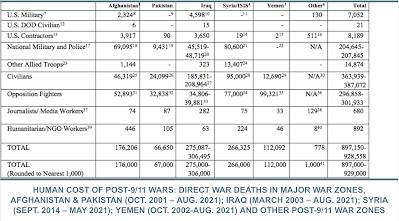
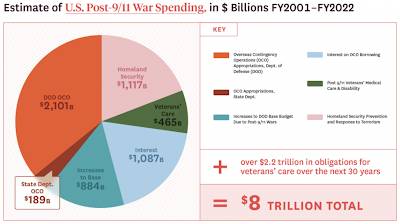
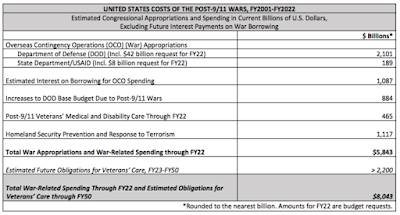
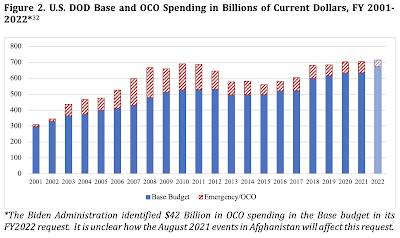
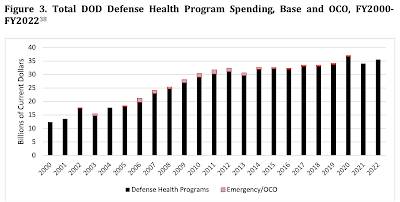
Be the first to comment